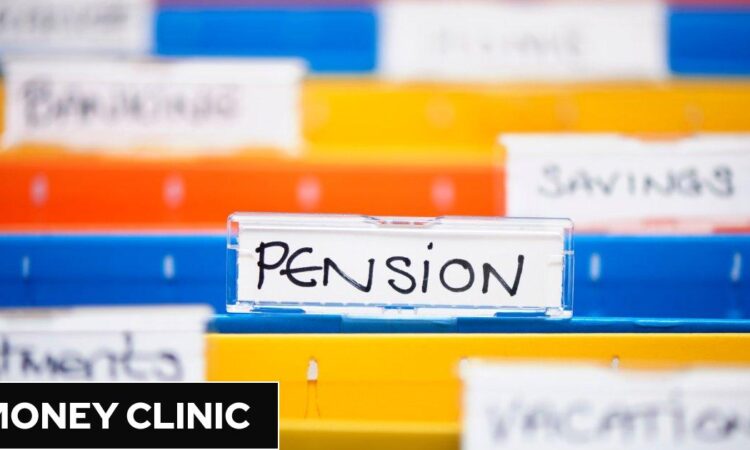‘I worry future pension rule changes will mean more tax for my wife if she inherits my savings’

In our weekly series, readers can email in with any question about retirement and pension saving to be answered by our expert, Tom Selby, head of retirement policy at investment platform AJ Bell. There is nothing he doesn’t know about pensions. If you have a question for him, email us at money@inews.co.uk.
Question: I have a “Self Invested Personal Pension” (SIPP) which is entirely invested in cash and which will transfer to my wife on my passing. My wife also has a SIPP invested 100 per cent in cash. If a future government reintroduces the lifetime allowance, will any pension my wife inherits from me count towards her lifetime allowance? And assuming my wife passes away after me, can her SIPP be passed to our daughter and further down the generations?
Answer: As usual, before getting to your question, let’s deal with the key bits of jargon. A SIPP is just a flexible type of pension that allows you to invest in a broad range of assets and usually offers complete flexibility over how you access your fund.
There are a wide range of SIPP providers out there offering different levels of service and, crucially, charging different prices for administering your fund. Choosing a low-cost pension that provides the level of choice, flexibility and service you need is crucial to ensuring you are able to make the most of your retirement pot.
It’s also worth touching on your pension investments. Generally speaking, most people investing via a SIPP will be taking at least some investment risk, in line with their risk appetite and with the aim of delivering long-term returns. When investing for the long-term there are, of course, no guarantees, and the value of your fund can go down as well as up, particularly in the short-term. Investing 100 per cent of your pension in cash will leave your fund open to the ravages of inflation, particularly if you maintain this approach for a long period of time.
The obvious exceptions to this would be where someone is planning to access their entire pension in the near future or buy an annuity. Anyone considering the former should think carefully about the consequences of withdrawing their entire retirement pot in one go, in particular the tax implications and how they plan to fund their retirement.
Let’s turn now to the lifetime allowance. The lifetime allowance was designed to limit the amount of pension you could build up tax-free over your lifetime before being hit with a tax charge. In his March 2023 Budget, chancellor Jeremy Hunt announced his intention to abolish the lifetime allowance from April 2024. In the meantime, the lifetime allowance tax charge has been removed.
One of the attractions of contribution (DC) pensions like SIPPs is they can be passed on tax efficiently to your nominated beneficiaries – and potentially completely tax-free. They should not normally be included in your estate for inheritance tax (IHT) purposes.
This does not, however, mean that inherited DC pensions will always be completely tax-free. The tax treatment depends on how old you are when you die – and this is where it gets a bit complicated, so bear with me.
There are two ways your beneficiaries can access an inherited pension – as a lump sum or as income. Tax treatment on death also depends on whether you die before your 75th birthday.
In 2023/24, if you die before age 75, it is possible to inherit any pensions taken as a lump sum or as income completely tax-free. This is the case regardless of whether or not your pension has already been accessed (or ‘crystallised’ in the jargon). However, be aware that any funds passed on from a pension that has not yet been accessed will be checked against the lifetime allowance, which for most people is £1,073,100. If you have used up your lifetime allowance, income tax will be charged on the excess if it is taken as a lump sum.
If you die after age 75 in 2023/24, things are a bit simpler – income tax will simply be applied to the entire pension, whether it’s inherited as a lump sum or as income. Of course, by taking any inherited pension as income, your beneficiary (or beneficiaries) can minimise their income tax bill by drip-feeding withdrawals.
The person who inherits your pension can, in turn, pass any unused funds on to their nominated beneficiaries when they die. This means pensions can be used to cascade wealth tax efficiently down the generations.
From 6 April 2024 onwards, the Government has confirmed the lifetime allowance will be abolished completely. In its place, it has proposed introducing two new limits:
- A “Lump Sum Allowance” set at £268,275;
- A “Lump Sum and Death Benefits Allowance” set at £1,073,100.
There is still some uncertainty over exactly how this new regime will operate, however. Once we have clarity on this, I’ll happily return to it in a future column.
In regard to your question about a future government reintroducing the lifetime allowance, at this stage we have no idea if this will happen, how it would be done or who would be affected. It is therefore best to deal with the tax rules as you see them, rather than trying to second-guess what may or may not happen in the future.







